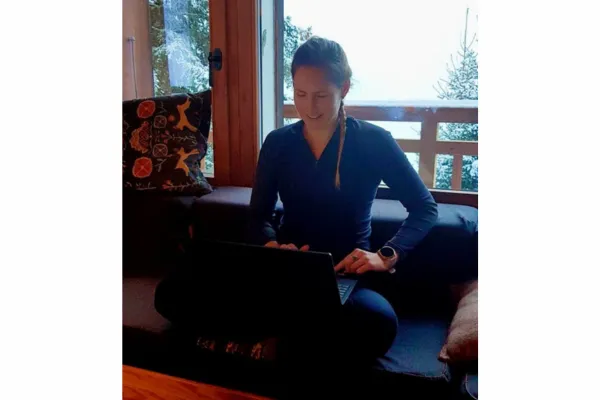
Do I need a website to start my business? The question on the mind of every new business starter.
Introduction
Starting out as self-employed the question likely on your mind is, just how crucial is a website to starting my business? A website serves as a powerful tool for establishing professional credibility and undoubtedly holds immense value for your brand. In the long-term it is an essential requirement. However, it's not a prerequisite for kickstarting your income generation. You can lay a solid foundation for your earnings and start creating an income without having a website from the outset!
Your website is likely to evolve as your business and portfolio grow, therefore it can be prudent to wait until you understand what you require from your website before investing.
Understanding the purpose of your website
As your business and portfolio grow, so will your understanding of what you require from a website. Your website function and design will be unique to your needs. It can range from a simple profile page that serves to enhance your professional credibility when people 'look you up online', to a comprehensive interface that allows customers to purchase, learn and connect with you.
When should I invest?
Depending on your business it may be prudent to wait until you have a clear understanding of your business requirements before diving into website development. By delaying this investment, you give yourself the opportunity to refine your offerings, identify your target audience, and understand the features and functionalities that will best serve your objectives.
On the other hand, having a website may enable you to feel more confident about your new business identity, value and reputation. Therefore having a website may boost you psychologically and be part of your independent growth and increased visibility.
An interim step is to secure your website domain (website address) and create a simple first site with a basic about section and contact details. This gives you peace of mind that your web domain has been secured and clients can search you up online. This allows you to put your energy towards building your offerings and client base without the larger investment in time and resources required for a fully fledged website at this stage.
How much should I invest?
Great question! Many people have taken the option to build their own website which is considered the DIY option. Most platforms are intuitive and you will quickly learn how to create a professional website. Although this does keep costs down, remember it will cost you your time. A significant mindset switch for the self-employed business starter who is used to getting paid a salary, is to see the value of their time differently, and cost it accordingly. For more on this topic see my other blog post When should I outsource? and check out my short online course Master your pricing and money mindset to nail your self-worth and make sound investment decisions.
You can of course outsource your web build to a professional website designer who will not only save you time but could provide additional services you may not yet have the skills for, such as SEO (Search Engine Optimisation), high quality imaging, compelling copy and an optimised customer navigation journey. Of course, this will cost you more and may be a sound reason to wait.
Of course there is a hybrid option where you outsource certain tasks and do the rest yourself. There is no right or wrong, just the best decision for you at this time considering your business needs, time and budget. You can always change it later down the line.
What did you do?
I have experience with both options and perhaps not in the order you would expect. When I started Soul Path I paid a web designer who helped me create my brand and website on Squarespace. Simple to use, I was able to make changes and create regular updates to my site. As my needs grew, I was continuously trying to figure out how to integrate other functions such as calendars, landing pages, payments and access to online courses. This is when I decided to move to my current website onto Modern which has considerable functionality at a much lower cost. This time I was more skilled and confident so whilst I was waiting for my baby to come, I built it myself.

Striking the balance
Your website serves as a direct representation of both yourself and your business. Finding the balance between letting go of perfectionism to take imperfect action vs creating a website that you are proud to show-off is just one of the myriad of choices you'll encounter as you embark on your solo journey. It's crucial to recognise that you're not navigating this path alone! You will find insights and guidance from fellow entrepreneurs on the same journey within the Soul Path Startup Community. You can ask them similar questions, including when they found the right time was to invest in a website and seek out their support. Join the community here.
A step-by-step process of creating and launching a website
Understanding the technical aspects of website creation and launch will help you make your decision. Here's a simplified step-by-step guide:
1. Define your objectives: Clearly outline the purpose of your website. Is it a portfolio showcase, an e-commerce platform, or an informational hub? Knowing your objectives will guide the entire development process.
2. Choose a domain name: Select a memorable and relevant domain name that reflects your brand and resonates with your audience.
3. Select a platform: Choose a website-building platform that aligns with your technical skills and business needs. Platforms like Modern, WordPress, Wix, or Squarespace offer user-friendly interfaces for beginners.
4. Design your website: Customise your website's appearance to align with your brand identity. Many platforms offer pre-designed templates, making this step more accessible for those without design expertise.
5. Create compelling content: Craft engaging and informative content that communicates your value proposition to your audience. This includes text, images, and any other media relevant to your business.
6. Optimise for search engines (SEO): Implement basic SEO practices to ensure your website is discoverable by search engines, increasing your online visibility.
7. Test and launch: Before making your website live, thoroughly test its functionality and responsiveness. Once satisfied, launch your website and celebrate your digital debut.
Conclusion
Remember, the decision to delay your website launch is not a dismissal of its importance but may be a strategic move to ensure your investment aligns with your evolving business needs. You can still begin to generate an income without one.
It can feel a little chicken and egg, but remember when you are starting out there are no wrong decisions – only indecision will hold you back. Your entrepreneurial success begins with confidence and action; a website, though valuable, can be introduced when the time is right for you.
Further resources to make your website decisions
Here is a list of further resources to get you started with you website blow. Remember imperfect action beats inaction. A decision is better than indecision.
Join the Soul Path Startup Community full of like-minded portfolio and business starters.
Complete my online course Master your pricing and money mindset.
See more blogs with helpful tips and inspiration for 'going self-employed'.
Check out my affiliate link to Modern my favourite website platform.
Book an introduction call and let's discuss your income ideas and get you taking your next step.
Calculate your startup costs; use my comprehensive financial planner to decide how much you want to invest in your website.

